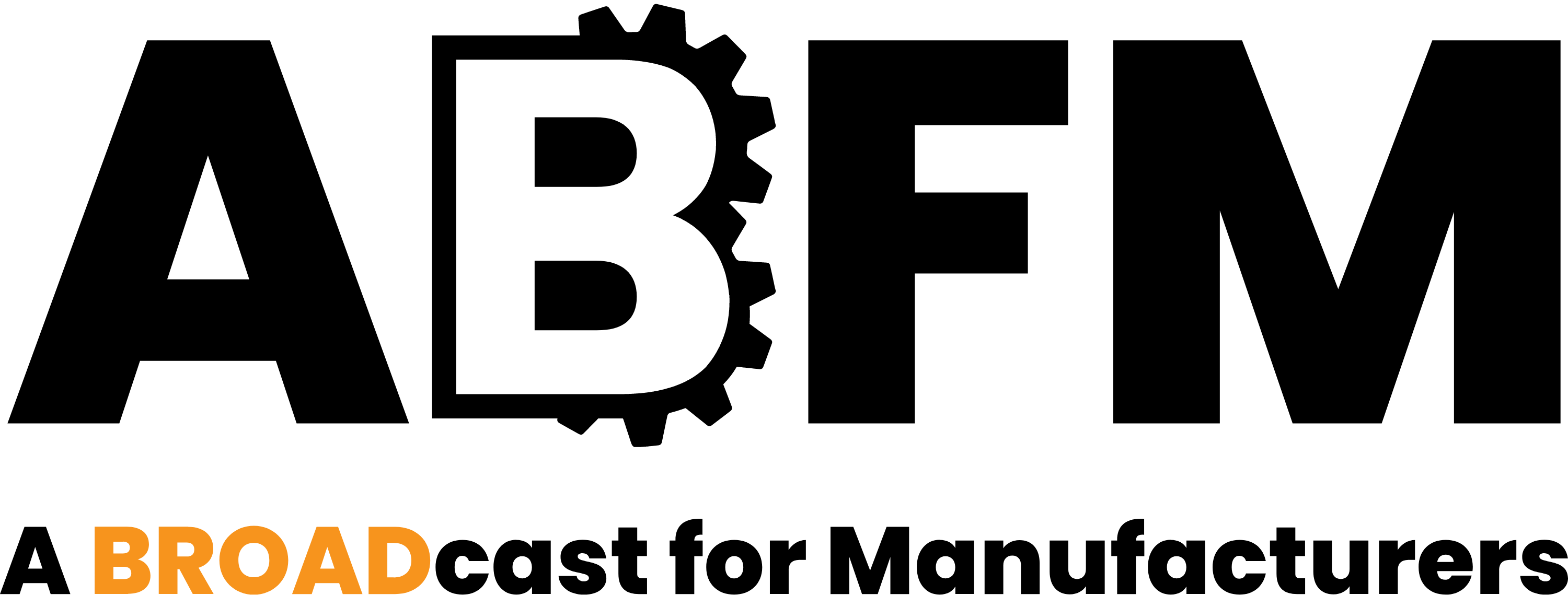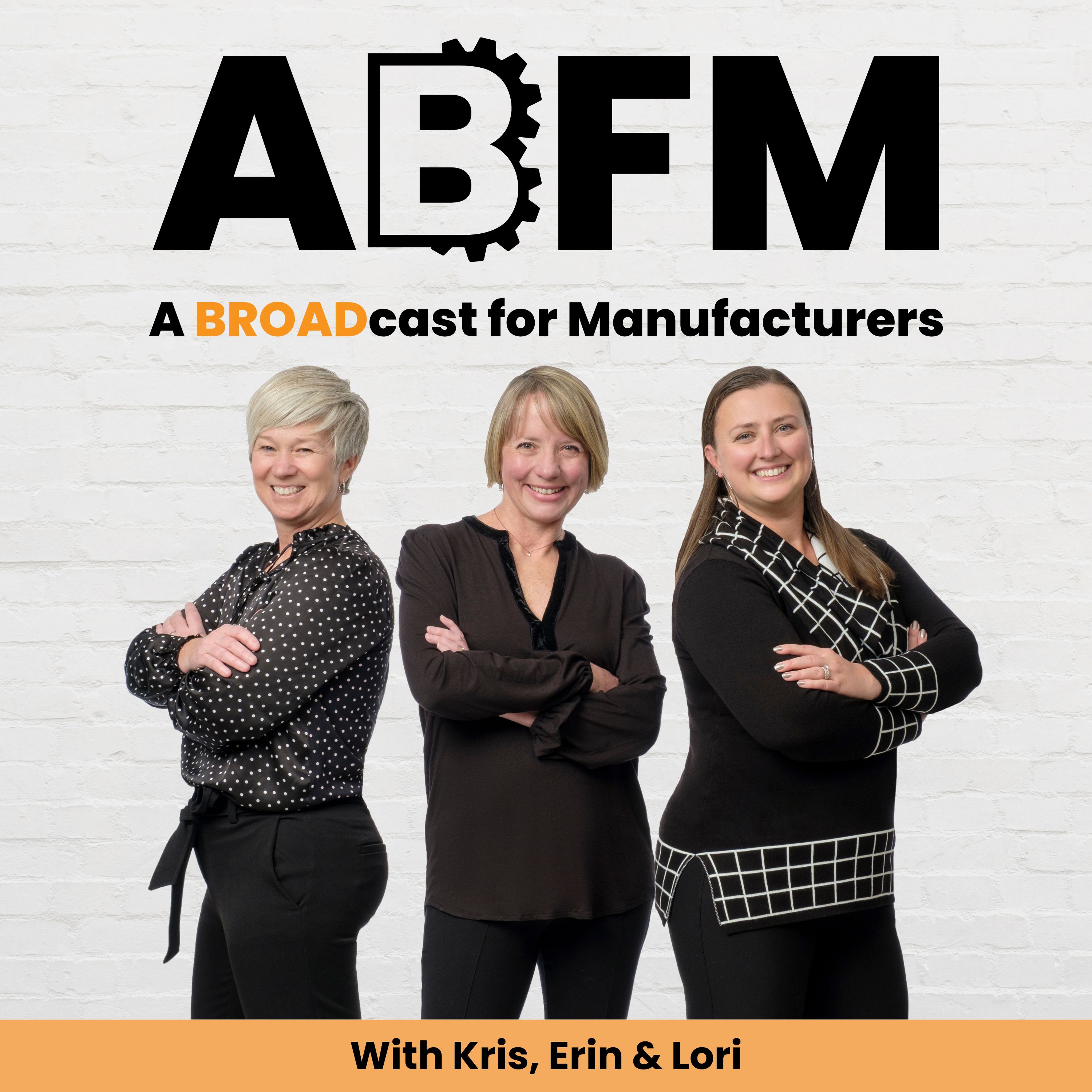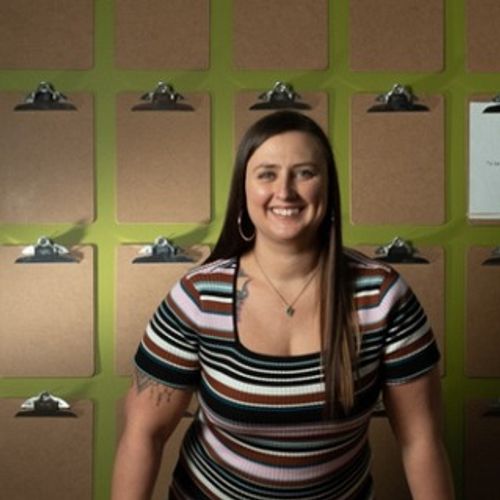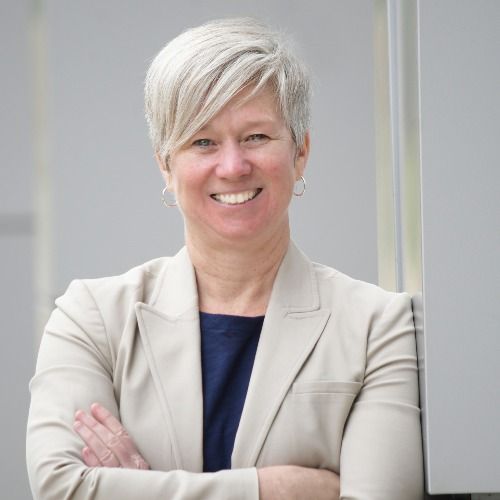Episode 13
13: The Importance of Manufacturing Jobs - with Harry Moser
Meet Harry:
Founder of the reshoring initiative after being president of GF machining solutions for 22 years. Awards include industry week's manufacturing Hall of Fame. He's participated actively in President Obama's January 11 2012 insourcing forum. He's a member of the Department of Commerce Investment Advisory Council. He's frequently quoted in The Wall Street Journal, Forbes, New York Times New Yorker, and USA Today, and he's seen on Fox Business Market Watch and other programs.
Lori: What is the mission of the reshoring initiative?
Harry: Basically, to eliminate the $1.1 trillion goods trade deficit, we import over a trillion dollars more than we export. And that has cost the US about 5 million manufacturing jobs. So when we achieve that when we achieve our mission, US manufacturing will increase by 40%. So if to all those who are listening, imagine you all of your businesses were up by 40%. How wonderful that would be for you for the country for your employees for all the kids who would now have would look and say, Wow, manufacturing career, let's go become manufacturers! This would be great for the country.
Lori: Absolutely. So why is it important to bring back these jobs to achieve this balance of trade?
Harry: Oh, as I said those, just having the jobs is good. If you think of the country's social ills, many people talk about income inequality. And part of that income inequality is that there's a couple of billionaires making a million a year you don't have one end of the distribution. But the biggest cause of it is that in the middle of the income distribution, we've lost those five or 6 million manufacturing jobs that that pay, you know, 50,000 or $100,000 a year, and 10s of 1000s of owners of small machine shops and foundries and things like that, that have gone under so company owners that made 100, 200, whatever, $1,000 for years. So you've had this hollowing out of the middle class significantly due to offshoring, due to the loss of jobs offshore. Another thing you see from that is the opioid epidemic. It's generally agreed that much of that which has occurred in rural America, was due to the company, town, the company, which was the main employer in the town going under for the work going off offshore. Now, these people couldn't find a comparable job, opioids, etc. So just all kinds of reasons why we'll be better off when those jobs come back.
Lori: Do you see any trends, any favorable trends that are in our direction? Things going the right way?
Harry: Oh. Yeah, I'm happy and chipper here, I wouldn't be otherwise. So when we founded the reshoring initiative in 2010, to track reshoring by US companies, and FDI, foreign direct investment by foreign companies think General Motors and Toyota, for example. So in 2010, when we found it, 6000 jobs were announced coming back, last year, 260,000 were announced. And this year, if things continue as they have in the first half, it could be 350,000. So we're up 5060 times over what it was 12 years ago. So it's been, it's been amazingly pleasing, rewarding, you know, good for the country, etc, etc. But it's still not enough. If you the despite those jobs coming back, the American consumer is so voraciously, consuming things coming in from China and offshore, that the trade deficit is continuing to rise. So we need to bring back 500,000 or so a year to counter that trend. And so it's, there's still, I've still got a lot of work to do.
And so much more…
Connect with Harry
Connect with the broads!
Connect with Erin on LinkedIn and visit http://www.earthlinginteractive.com for web-based solutions to your complex business problems!
Connect with Lori on LinkedIn and visit www.keystoneclick.com for your strategic digital marketing needs!
Connect with Kris on LinkedIn and visit www.genalpha.com for OEM and aftermarket digital solutions!
Transcript
Lori Highby Chris Harrington and Aaron Courtney, three broads, bringing you stories and strategies exploring manufacturing topics that
Lori Highby:All right, Chris, we're in the dog days of summer now, aren't we just kind of wrapping her up here? It's sad.
Kris:We are. Okay.
Lori Highby:It's okay. It is okay. I've been maximizing my summer. So I kind of don't mind things slowing down a little bit. For my own personal
Kris:Yeah, we're leaving for the weekend for a wedding in Madison. And I was out early this morning soaking the garden just to make sure there was
Lori Highby:It's so big and flowery and bright and bushy. Yeah, already. I'm loving all my plans right now. Well, let's get into the show. Here we
Lori Highby:frequently quoted in The Wall Street Journal, Forbes, New York Times New Yorker, and USA Today, and he's seen on Fox Business Market Watch and other
Kris:Welcome, Harry.
Harry:Great to be here. Ladies. It's a pleasure.
Kris:Oh, man, I
Lori Highby:know, we chatted on a couple of other platforms. But let's share with our listeners, what is the mission of the reshoring initiative,
Harry:Basically, to eliminate the $1.1 trillion goods trade deficit, so we import over a trillion dollars more than we export. And that has cost the
Harry:career, let's go become manufacturers wiould be great for the country.
Lori Highby:Absolutely. So why is it important to bring back these jobs to achieve this balance trade?
Harry:Oh, as I said those, just having the jobs is good. If you think of the social ills of the country, a lot of people talk about income
Harry:owners of small machine shops and foundries and things like that, that have gone under so company owners that made 100, 200, whatever, $1,000 for
Harry:the work going off to off shore. Now these people couldn't find a comparable job, opioids, etc. So just just all kinds of reasons why we'll
Kris:Well, I haven't heard that relationship before to the opioid crisis. So, but it makes a lot of sense that you know, I guess I really didn't tie
Harry:Yeah, a couple of Professor outdoor at MIT and a couple other people have done that and they, they've looked at where the opiods Try where the
Lori Highby:Yeah, that's really interesting. Yeah, you see any trends, any favorable trends that are in our direction? Things going the right way?
Harry:Oh, definitely. Yeah, I'm happy chipper here, I wouldn't be otherwise. So when we founded the reshoring initiative in 2010, to track
Harry:what it was 12 years ago. So it's been, it's been amazingly pleasing, rewarding, you know, good for the country, etc, etc. But it's still not
Lori Highby:I've got a follow up question that then because of all of these jobs coming back, which is fantastic, without a doubt, but the big
Harry:First, finally, they are finding the people. Most companies are finally getting what they need. And it's getting a little better now, as
Harry:around the country. And, and so, and also, there's, I just read a survey that said, due to due to the COVID crisis, and people understanding about
Harry:same time, things aren't as good there. So even in Germany, which has the best program, it's harder and harder to get kids into the apprentice
Harry:sociologists, and anthropologists and do art and music kind of thing. Yeah. And so in other countries, it's harder. Even in China, I read a story about
Harry:skilled workforce recruiting, because first reshoring needs the recruitment. Obviously, you know, you're very right on with that. But to
Harry:That's a great career.
Kris:Yeah, that makes a lot of sense to me. Harry, we heard that you were in Washington. Back in June. Can you tell us what you talked about while
Harry:Yeah. So I was at the something called the US China economic security and Review Commission, which has nine I think nine commissioners,
Harry:generalist. And the it was fun was an honor, obviously to be there. But the I made the I made the point that that the the major problem we have the
Harry:skilled workforce, many more kids going into apprenticeship, and fewer going into liberal arts. For your programs, we need, we need a lower
Harry:only do two things, it would be those two, and then maybe a third, to keep immediate expensing. So immediate, expensing says I have a capital
Harry:accountant said, we're making an awful lot of money, we're going to pay tax too much taxes, what should we do to buy a $200,000 machine tool to cover
Kris:Yeah, I read in the summary of the reshoring initiative of your time in Washington that, you know, if a 20% reduction in imports would cut the
Harry:then they had, they do these twice a month, I think, once once, maybe once a month. And then the the commission takes the results, and they
Harry:enough of it to invite us to present. So so it makes it, it makes it easier to get some attention to the subject. Yeah, I appreciate your bringing it
Kris:Yeah, no, I really like, you know that you're doing this on behalf of manufacturers, because part of what we're consistently talking about, with
Harry:Well, the thing before a skilled workforce are important. So I'm wearing my man manufacturing is cool t shirt. Okay, which is which we give
Harry:States.
Kris:It's a very cool shirt black and white. People should want to have this manufacturing is cool t shirt so I can vouch for that. All right, so
Harry:But firstly offer hope, I'd say ya have to have some hope you have to have confidence to to get anywhere. And and I'd say three, four years
Harry:in manufacturing more confidence in the country than they would have otherwise. There was a survey that one of the companies did, and they
Harry:where we should, why don't we think about reshoring, if I achieve that I've achieved enough. But we offer that we provide that. And then we have the
Harry:carrying cost of inventory, the risk of stocking out the risk of intellectual property loss, no less travel costs, all this kind of stuff.
Harry:could like to take a couple of weeks vacation.
Kris:Is that TCL estimator? Is that on your website? Or is that something they would reach out to you? And then you would walk them through it? See,
Harry:Well, it's on the website. It's, it's free to use, they have to sign up and then sign in. And there's instructions and explanations and all that
Harry:and bring back what makes sense for you bring it back to work that was which you'll be more profitable if you bring it back.
Lori Highby:Yeah, we'll include a link to all that in the show notes for sure.
Kris:Yeah, makes sense. Is there anything else that you would advise other than the estimator that companies do today? To kind of evaluate or get
Harry:Okay, so I'll differentiate between two kinds of companies the the OEMs, and then the supply chain companies or contract manufacturers, people
Harry:where people are suffering, because then when you do the analysis on those, you'll have champions that will support the process instead of Pooh poohing
Harry:widgets are. So that the company we're dealing with, can then go to those importers. And say, I see you're bringing in 50 tonnes a year or 100 tonnes
Harry:we have a program somewhat similar for states in which we can identify the biggest supply chain gaps, think of PPE, rare earth minerals, very obvious
Kris:Yeah. Well, I definitely am hearing if there's any manufacturer out there thinking about doing this, contacting Harry Moser would be really
Lori Highby:Absolutely. Well, I think this is a good time to switch to the other fun half of the of our segment here, which is where we share
Kris:I just learned that Wisconsin is the largest producer of ginseng in the United States is you know, I
Lori Highby:knew that one.
Kris:Know It. I was. So here, if you don't know, all three of us, you know, the host of this podcast. We're all located in Wisconsin. And I have
Lori Highby:that's something I learned. Well, you could grow your own then right on. Yeah, I
Kris:guess I could explore it. I mean. That's fun. What did you learn, Laurie? How do you finish?
Lori Highby:Yeah, so I thought this is fascinating. You know, I look at like stats and digital anything around the digital ecosystem. And so if you
Lori Highby:kind of slowly going away and the streaming channels are. That's what that's what's growing. There isn't really one streaming platform that
Kris:something that is interesting. So that's the first time it's happened. The switch? Yeah, yep.
Lori Highby:All right. Anything you want to share that you've learned recently?
Harry:Yeah, I learned something every hour or so. But what it reminds me of though, is something that I that someone I read about, and I try to
Harry:good networker. Like if I'm at a reception, I meet everybody and find out if who wants to reassure her, you know, but the key thing I found in
Harry:something like that. I think it's something we can all do better rap.
Kris:Oh, great advice. I love it. Yeah, me too. I'm gonna use it to Harry, I'm stealing it, things like that.
Lori Highby:All right, you know, you shared a little bit about your website as far as people can go there. But why don't What if someone's
Harry:website, it does have info at reshoring out on org and that comes to me, but directly on Harry dot Moser, mos er at regional now.org I'm
Lori Highby:Alright, that's great. That's cool. Include all that information in our show notes. Thank you so much, Harry, for taking the
Harry:Yeah. It was great. Yeah.
Kris:Thank you, Harry. It's a big advocate.
Unknown:This wraps up today's broadcast. If you're looking to shake up the status quo at your organization, or just want to connect with these brides,




